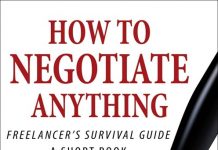US Publishing Industry Might Soon be Infecting Pirates with Malware (Good e-Reader)
The Publishing industry in the United States may soon be infecting eBook pirates with Malware. A new report proclaims a dire need for new tools that would allow for the photographing of the pirate using his own system’s camera, implanting malware in the their network, or even physically disabling or destroying the hacker’s own computer or network.
—
The Guardian Newspaper Goes Global (Good e-Reader)
British National Newspaper The Guardian has just unveiled plans to take its online news reporting global. It has announced that the publication will incorporate its US, UK, and Australian divisions under the single online property TheGuardian.com.
—
In Defense of Digital Freedom: It’s Time to Go Beyond Cyber Hyperbole (Techdirt)
Marietje Schaake, a member of the European Parliament often credited as one of the most tech savvy (and, yes, a regular Techdirt reader) has penned an excellent article, In defense of digital freedom. It’s well worth a read, even if it covers many things that regular readers of the site will be familiar with.
—
Crowd-Sourcing the News: Do We Need a Public License for Citizen Journalism? (Paid Content)
Social platforms like YouTube have become a rich source of “citizen journalism” about breaking news events, but media outlets don’t always provide credit. Mark Little of Storyful wants to try and change that with a public license for video news.
—
Kindle Daily Deals: Righteous Series by Michael Wallace


































Damaging a pirate’s system sounds about as sensible as setting out a bear trap for a housebreaker. Thieves could sue if their ankle was destroyed.
More interesting, I think, would be to take a lesson from the old spy school methodology. Release plants of information that can be traced to a source. The publishers could upload specially edited versions with key scenes removed or changed. Readers of books and watchers of movies would be unsure they have the authentic edition and could reveal themselves as pirates if they talked about the details in too much detail.
I’m not too sure how the pirate sites would handle a flood of inauthentic copies. Now would pirates react if the read 350 pages only to discover parts of the final chapter missing?
Hackers have been doing this to pirates for many years. Instant Karma. They have also put up book-selling sites that look legitimate but only go after identity and credit card info instead of selling books.
Years ago, SFWA dumped a bunch of popular books into the pirate torrents. They filled the books with bizarre gibberish inserted in parts of the book and cut other parts. They also used universal search and replace for various words. Some called this project “Luke, I am your feather.”
Let’s hope major publishers are not this stupid. This malware will soon leak out to the public, harming and outraging people who didn’t know that what they were doing was illegal.
The real answer to pirating is what Amazon and Apple already do–offer added benefits for buying legit and keep the price reasonable. What publishers ought to be doing is finding ways to bring ebook buying in-house, so they know who’s buying their books and can use that for marketing.
That said, I do like the humor in SFWA’s solution: dumping flawed versions into the pirate stream. But the downside to that is, if an author essentially releases 99% of his proper text into the public domain that way, he may find it hard to enforce his copyright on clean copies. You and I may find that funny, but courts are likely to treat it differently. Courts rarely display a sense of humor.
MIchael, that’s not how copyright works. A copyrighted work is copyrighted wherever it is.